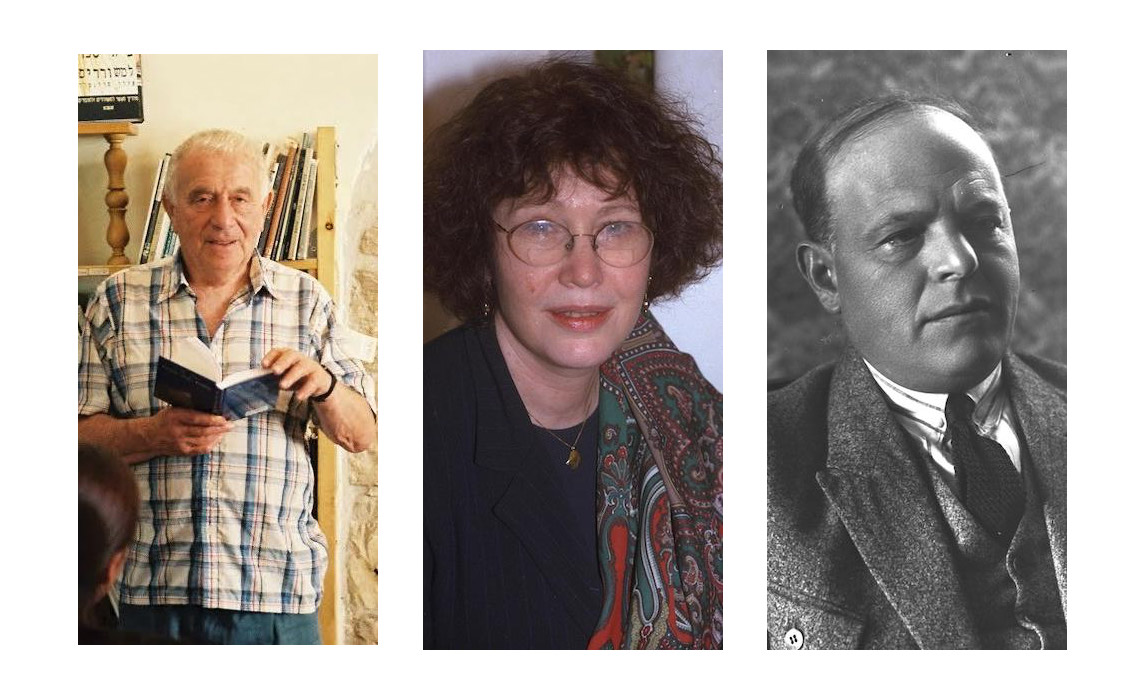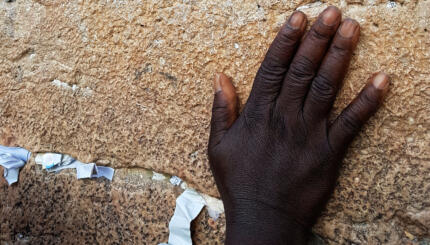In Pirkei Avot (2:5), Hillel teaches: “Do not separate yourself from the community.” Far from praising the stereotypical “religious” character alone on the mountaintop, this verse tells us everything we need to know about Judaism’s treatment of isolation as worrisome and indulgent.
And yet, under the lowering shadow of COVID-19, it may provide comfort to know that our tradition has not ignored the experience of solitude. Indeed, three Hebrew-language “greats” have formulated full and rich poems out of it. Reading these poems — one an expansive self-exploration, one an expression of bitter inertia, and one a voice of doubting lament — can remind us of how varied the state of solitude can be, and give comforting voice to our own experiences.
Expansion in Contraction: Yehuda Amichai
First, a bit of uplift. In physical isolation, we can’t help but turn inward, and in his “Poem Without an End,” Yehuda Amichai (1924-2000) reminds us that inner space can be a destination as worthy of exploration as outer space:
Poem Without an End, Yehuda Amichai
Translated by Chana Bloch
Inside the brand-new museum
there’s an old synagogue.
Inside the synagogue
is me.
Inside me . . .
(Read the full poem here.)
A perpetual favorite (once chosen by Robert Pinsky to greet riders on Boston’s T), the poem is almost a Hebrew version of Blake’s “Auguries of Innocence” (“To see a World in a Grain of Sand . . .”), in which the solitary individual blooms open like the petals of a flower.

Help us keep Jewish knowledge accessible to millions of people around the world.
Your donation to My Jewish Learning fuels endless journeys of Jewish discovery. With your help, My Jewish Learning can continue to provide nonstop opportunities for learning, connection and growth.
The marvel of this poem is in presenting a verbal form of something we’re much more familiar with visually: the Droste effect, in which an image repeats within itself, suggesting an infinite loop (think of the old Land O’Lakes logo). As Amichai’s recursive “Poem Without an End” whittles down to one or two-word lines, it paradoxically suggests ever more expansion. This journey also functions as a metaphor for Hebrew poetry, in which the new idiom emerges from the old language, three thousand years of verse that nest like Russian dolls. In isolation — necessarily apart from synagogues, museums, and all the other public sources of nurture and enrichment — we can all use the reminder of how much growth is still possible, and how fertile the self is as its own source of nurture and enrichment.
Primal Hunger: Dahlia Ravikovitch
Of course, not all of us rise to that generous expansiveness. In “Portrait,” Dahlia Ravikovitch (1936-2005) offers us a more prosaic disgruntlement. If misery loves company, I have a feeling many will relate:
Portrait, Dahlia Ravikovitch
Translated by Warren Bargad & Stanley F. Chyet
She sits home for days on end.
She reads the newspapers.
(So what, don’t you?)
She doesn’t do what she’d really like to do
she’s got problems.
She’d like some vanilla, lots of vanilla;
give her vanilla.
. . .
It’s really pretty silly.
At times even she finds it laughable.
Winter’s hard for her, and summer’s worse.
Go ahead, laugh,
a mimosa, you could say,
a bird that can’t fly;
there are lots of things you could say.
She’s always wrapping herself in something, and then she chokes,
a checkered skirt or sometimes something else.
Why, you ask, does she wrap herself up to the point of choking?
These things are complicated.
It’s the cold of winter and the impossible heat of summer,
it’s never quite what you want.
And by the way, don’t forget: she’d like some vanilla.
Now she’s crying.
Give her vanilla.
If the subject of this poem were American, the metaphor for white, obliterating succor would be snow (it is impossible to pick up an American anthology of poetry without noticing how much snow blankets the poems of Robert Frost and Emily Dickinson), but in Ravikovitch’s case the white substance is vanilla. And yet: vanilla is a flavor, not a substance. How to interpret this? The woman has become baby-like in her state of inanition: “Now she’s crying. / Give her vanilla.” She needs to be soothed, and we are almost invited to imagine the white, lulling substance of soothing as mother’s milk.
But mother’s milk is also the primal emblem of connection; and it is that connection that the speaker truly hungers for. If this world, as the Jewish ethical tradition of Mussar teaches us, is olam ha-yedidut (the world of friendship), then isolation goes counter to our most basic nature. We are, as the poem has it, “a bird that can’t fly.”
Doubt and Despair: Hayim Nahman Bialik
The image of a forsaken bird also appears in our next poem, “Alone” by Hayim Nahman Bialik (1873-1934). Sometimes translated as “By Myself,” the title “Levadi” is actually a possessive—my alone, a claimed state. And while sharing the anguished mood of “Portrait,” in contrast to Ravikovitch’s ironic interrogation, Bialik’s tone is elegiac:
Alone, Hayim Nahman Bialik
Translated by Ruth Nevo
Wind blew, light drew them all.
New songs revive their mornings.
Only I, small bird, am forsaken
under the Shekhina’s wing.Alone. I remain alone.
The Shekhina’s broken wing . . .(Read the full poem here.)
The standard reading of this poem is of a lament for the Haskalah (Jewish Enlightenment), which had emptied the traditional edifices of Judaism. As a boy hides in an abandoned House of Study, only the Shechinah (the feminine Divine), a woefully degraded presence in this new world, shelters the boy and shares his agony.
And yet the situation is not so straightforward. The Hebrew meter is not as controlled as it first appears, and while the first four stanzas end in periods, the last two end in a more ambiguous ellipsis and an em-dash. The pained, Romantic voice of Bialik is not as decisive in its choice (tradition vs. modernity)—or as comfortable in its surroundings—as it first seems.
In the isolation of social distancing you may be experiencing a kind of personal growth and expansiveness or a primal, child-like hunger or a combination of despair and doubt. Or perhaps all three by turns. But whatever your experience, reading these classic Hebrew poems offers us three resolutely different ways of coping, and reminds us that in a larger sense, we’re not alone.
Want more? MJL’s “Discovering Jewish Spirituality” email series will guide you through authentic Jewish methods of bringing spirituality into your everyday experience. Sign up here.
Enhance your spirituality journey by joining our weekly Jewish Meditation Moment for a brief Jewish teaching followed by a guided meditation.



